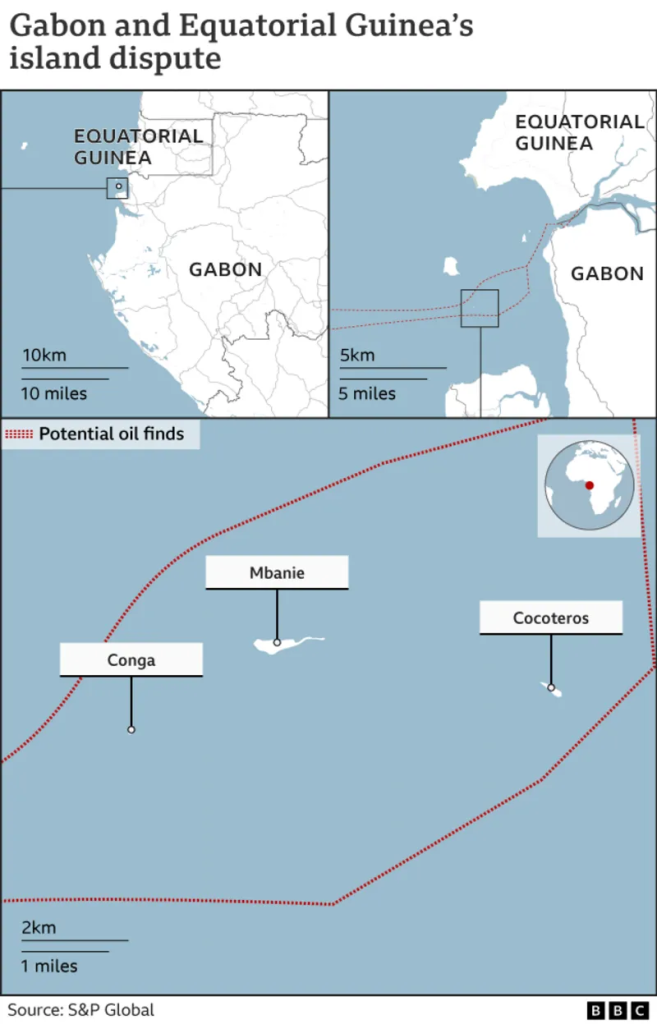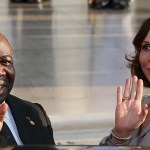The United Nation’s top court has sided with Equatorial Guinea in a row with Gabon over three islands in potentially oil-rich waters.
The two Central African countries have been arguing over the isles – Conga, Mbanié and Cocoteros – since the early 1970s.
The islands are virtually uninhabited but are in a maritime zone thought to contain significant oil deposits.
The International Court of Justice (ICJ) ruled that Equatorial Guinea’s claim – based on a 1900 treaty dividing up French and Spanish colonial assets – should be honoured.
The court dismissed Gabon’s central argument – that a more recent treaty, the 1974 Bata convention, had switched the islands’ sovereignty in its favour.
In a final and binding ruling, the ICJ said Conga, Mbanié and Cocoteros were held by Spain, and then passed to its former colony Equatorial Guinea at independence in 1968.

Gabon will now have to remove its soldiers from Mbanié, the largest of the islands.
In 1972, the Gabonese army drove Equatoguinean troops from Mbanié and established its own military presence there.
Hostilities cooled until the early 2000s, when the prospect of oil in the Gulf of Guinea became apparent.
In 2016, following years of mediation by the United Nations, the two nations agreed to let the ICJ settle the matter.
A spokesperson for the Gabonese presidency said it was now down to the countries to negotiate in the light of the ruling, the AFP news agency reports.
“Gabon and Equatorial Guinea have to live side-by-side, we can’t move away from each other. Therefore we will have to talk it over to solve all these problems,” said Guy Rossatanga-Rignault.
Both countries are significant oil producers. However, they have experienced falling oil production in recent years due to underinvestment, insufficient exploration activity and ageing wells.














